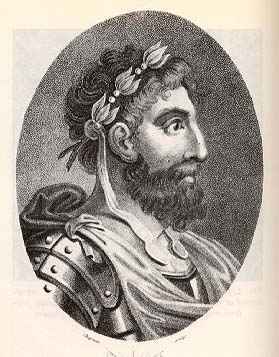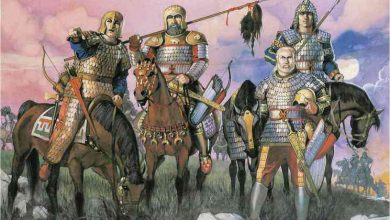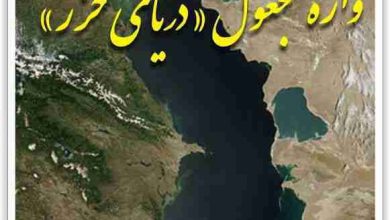History of Xenophon and Cyrus the Great

Xenophon: "We researched it to find out what kind of education Cyrus benefited from, that he was able to be the leader of all people in this way."
Xenophon in 445 BC, he was born in a small village near Athens and studied under Socrates..
In his youth, he became one of the mercenaries of Cyrus' army to help him in the war with his brother Ardeshir. The war between the two brothers ended with the death of Cyrus the Younger and Xenophon and other Greek mercenaries were displaced.. Xenophon gave the report of this war and the return of the Greek mercenaries to their land in the book "The Return of Ten Thousand Men".. Another result of Xenophon's trip to the east of the ancient world was getting to know the ruling style of Cyrus the Great, the founder of the Achaemenid Empire, which is preserved in the form of the book of Cyrus..
…
When Xenophon returned to his homeland, Socrates had drunk the cup of hemlock and chaos had cast a shadow over Athens.. It was feared that civil wars would break out between Greek cities. Each of the Greek thinkers was looking for a solution to improve people's lives. Plato introduced an ideal city where no one is oppressed, because clean thinkers manage the city.. Aristotle said that if the rulers are familiar with the science of politics and manage the country based on logic, they can create such a city.. By writing the book of Cyrus, Xenophon wanted to tell the people of Athens that there was such a ruler in the world and they should try to cultivate such a person..
Xenophon says in the introduction of this book that he once thought that it was much easier for humans to rule over animals than over other humans.. Except that the flocks go where the shepherds guide them and they never disobey the guidance of their rulers, i.e. the shepherds.. Xenophon says: "But when I saw how Cyrus, the king of Iran, ruled over a large number of people and brought many cities and various peoples under his command, I returned from my original opinion and was forced to admit that not only ruling over people is an impossible task. It is not, but it will not be difficult either, provided that the ruler is wise and knowledgeable. »
Xenophon had not seen Cyrus the Great, because many years had passed since the death of that famous ruler, but he had heard his description from the people who lived in the time of Cyrus.. He says it himself: "In the territory of Cyrus, many nations and peoples all obeyed him, even though they were separated from each other by days, but months, and some had never seen him with their own eyes, and some were sure that they would never see him, but they were all of one mind. And in one direction, they were trying to come under the authority of his kingship and obey his commands. Therefore, Xenophon wrote the biography of Cyrus from birth to death in the form of a readable book so that the Greek people could learn from the behavior of that benevolent ruler by reading it..
Joseph Weishofer, a German historian, points out in the book Ancient Iran that Cyrus the Great was not only excellent in war techniques and political skills, but also in friendship, freedom, gentleness, tolerance and kindness towards his enemies.. Among other sources, he mentions the book of Cyrus as one of the appropriate sources for knowing Cyrus and reminds that: "This book was the most widely read book of all ages until the 18th century AD, and Xenophon's description of the Shah of Iran was referred to and cited the most in European literature and art."
A large part of the book of Cyrus is dedicated to the report of Cyrus the Great's campaigns, his war methods and his behavior with his soldiers and defeated nations.. But since the author of this book was one of the students of Socrates, he mixed it with moral teachings instead.. In this book, Xenophon introduced a great ruler who was very intelligent and emerged victorious from all battles, and on the other hand, he was a moral person for whom doing good to others was more enjoyable than all the joys in the world.. Surely such a book should not be the most read book of all ages?
For more information:
1 . Xenophon. Kureshnameh. Translated by Reza Mashayikhi. Tehran: Scientific and cultural publishing company, 1386
2 . Westhofer. Joseph. Ancient Iran (From 550 BC to 650 after birth) Translated by Morteza Saqibfar. Tehran: the Phoenix, 1377Taken from Knowledge Island






that was perfect . I hope that there will always be nationalist people like you who spread these contents and respected translators who have taken all the hard work in our Iran. . May our ancient history always make us proud in the whole world
Peace be upon you. As a small soldier, I am working for the cause of Iranian culture, and in my absence, thousands will be better than me. It has been like this for seven thousand years.
Hello, thank you